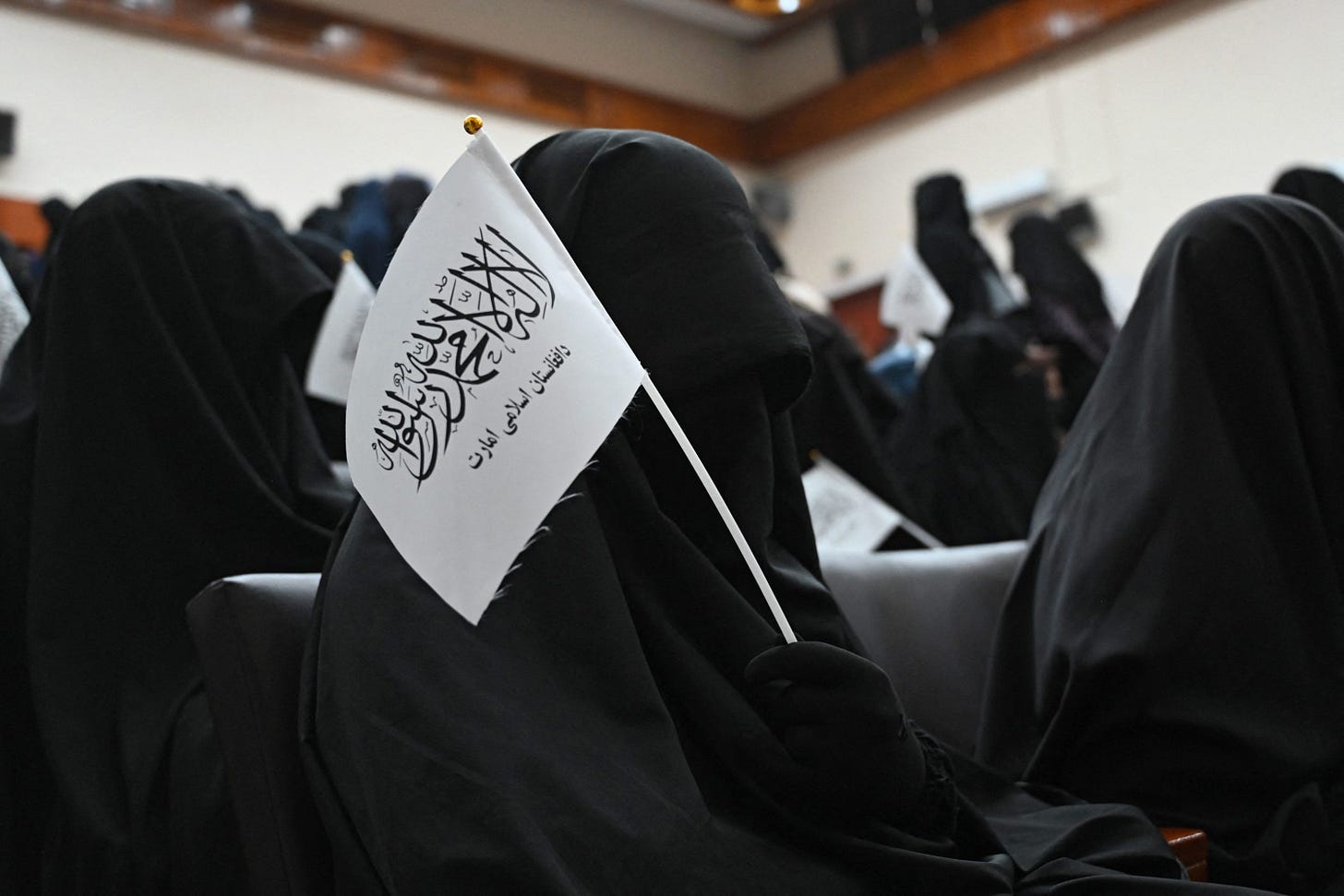Taliban 2.0
“Moderation” can be dangerous, too.

A lot of analysis of the next phase in Afghanistan has centered around the nature of the Taliban: Is the group now “moderate”? We talk as though moderation is a single thing a leader turns on or off with a switch, and that it will last. The conventional wisdom also seems to be that if Taliban becomes more moderate, it will be a blessing all around.
It is not the conventional wisdom, but the truth that is more complicated than it sounds.
While Taliban ideology has long and complicated roots, it has been most influenced by the international jihadist movement guided by Wahhabism—which has as a goal the purification of Islamic society of the perversions added to it since the time of the Prophet and his Companions. Acting on this belief, the Taliban slaughtered thousands of Shi’ites after their last victory.
In the West our attempts to understand such ideations are relatively new—beginning more or less, on September 11, 2001. But we have greater familiarity with the development of other extremist movements, such as Communism, the Protestant Reformation and the French Revolution. And these hold lessons for us, too.
To take the first case, Communism shows how victorious extremist movements can indeed be forced into moderation by circumstances. In 1920, having won the Russian Civil War, the Bolsheviks found themselves confronted by famine and an epidemic of anti-Soviet peasant rebellions. In the depopulated big cities, where industrial production had sunk to less than a fifth of the Tsarist figure, a rash of worker strikes culminated in the mutiny of the radical Navy sailors who had launched the 1917 Revolution. Lenin decided to respond by persuading a surprised party to abruptly zigzag, setting a New Economic Policy, which allowed peasants far more economic freedom and recreated private business.
There was a trade-off. Lenin compensated for his concessions to the market by prohibiting dissident movements within the Communist Party that were agitating for free trade unions and a return to the Revolution’s promises of liberty. The Party also crushed the last traces of activity by other parties.
By disciplining socialist fantasies such as the abolition of money, Lenin’s NEP allowed the Bolsheviks to construct a solid state—and eventually a mighty army.
So this “moderation” was relatively good for the welfare of many Russians in the short term. But also an engine that made Soviet aggression and authoritarianism more virulent in the medium and long terms.
Moderation can bring danger, as well as relief.
The NEP didn't last. A few years later, Stalin led the Communist Party into a frenzied domestic extremism, with theft of peasants’ crops (“collectivization of agriculture”), famine used as a weapon, the deportation of well-to-do peasants, the creation of a huge Gulag, and forced orthodoxy in culture—all of which were followed by the even more cruel Great Terror. Soviet history saw such returns to radicalism—of differing nature—in 1947, 1961, 1982, and 1987.
Which leads us to another characteristic of extremist movements: They periodically return to savage behavior. The reason is that turns to “moderation” come not from mild feelings, but as a response to the practical difficulties of achieving distant goals. But delaying the ultimate goals eventually creates a frustrating sense of impasse, of self-betrayal. Extremisms of ideas tend to produce autocracies, and moderation can threaten the political order. From the eighth century to our times, an oscillation back and forth between harsh and mild behavior can be seen in such movements.
Current opinion sees Taliban’s human rights practices, above all the treatment of women, as an overall indicator of across-the-board moderation.
But it does not follow that a regime which treats women slightly better will also refrain from conducting terrorism. Just to take one example: Iranian policies toward the hijab were enforced more selectively during the years when Iran aggressively expanded its attacks against America in Syria and Iraq.
And crucially, Iran has been a much greater danger to U.S. interests than even more extremist groups such as ISIS or Boko Haram in part because Iran has been “moderate” enough to be able to wield the powers and privileges of an organized state.
Policy is not made in a single area, nor is political moderation one thing. The Taliban has motives to consolidate its gains and maintain the state structure it has conquered. It also has a powerful impulse to build triumph on triumph. These two goals may be in tension. And so we should expect that any “moderation” in the Taliban will (1) be done in service to ultimate goals that run counter to American interests and (2) be transitory.

